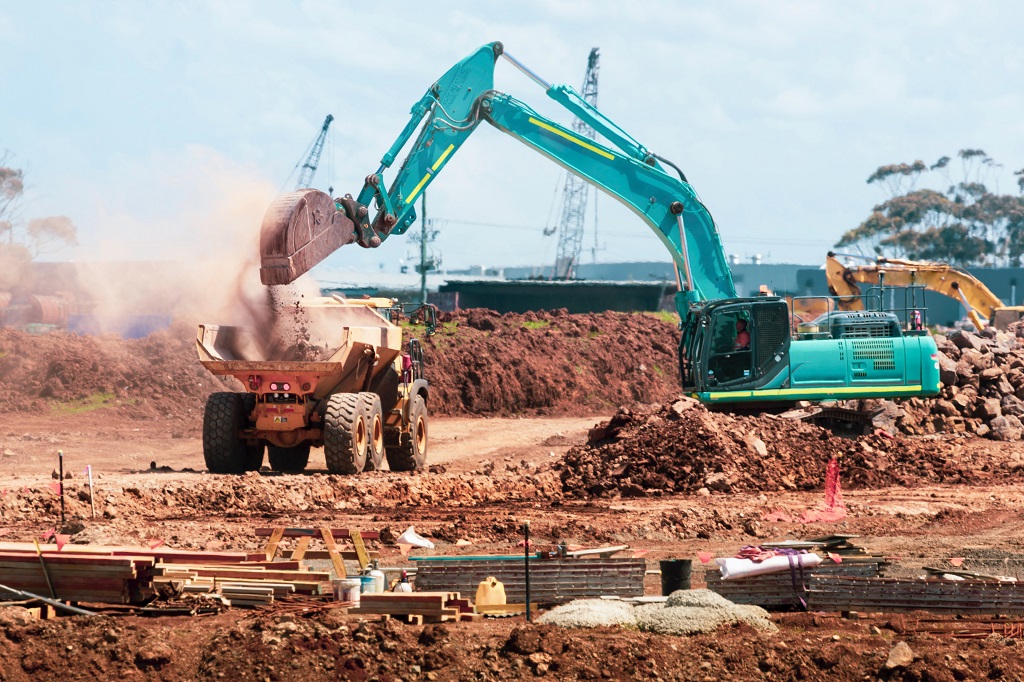Rayner launches taskforce to tackle bunged-up builds
The New Homes Accelerator will unblock stalled housing sites by cutting red tape and streamlining bureaucracy – unleashing their potential for up to 300,000 homes.
Government figures indicate there may be more than 200 sites in the pipeline with outline or detailed planning permission, still waiting for ground to be broken.
What is it?
The New Homes Accelerator will focus on partially built developments and those caught in the gridlock of the planning system in a drive to boost economic growth and meet Labour’s oft-quoted target of 1.5m homes by the next election.
A group of experts from the Ministry of Housing and Homes England will work with local councils to reinvigorate such stalled projects.
Formally introduced today by deputy prime minister Angela Rayner, her plan aims to bring key players, government agencies, local planning departments, and housebuilders to a consensus while deploying planning experts on the ground, to assess sites and the causes of their delays.
Rayner said: “Our New Homes Accelerator will quickly identify blockages, fix problems, and support local authorities and developers to get shovels in the ground.
“For far too long the delivery of tens of thousands of new homes has been held back by a failure to make sure the development system is working as it should.”
The Accelerator will increase the provision of resources to boost local planning capacity and, crucially, the speed at which planning decisions are made through targeted decisions to bypass bureaucratic roadblocks.
This will simultaneously inform departments on future reforms by identifying where policy barriers are particularly hard to hurdle.
Call for sites
In addition, a call for evidence has been launched to encourage landowners, local authorities, and housebuilders to come forward with information on blocked sites plagued with planning issues.
The plan’s guidance stated priority will be given to viable sites, that would not require substantial additional government funding or infrastructure investment.
Developments with a capacity of more than 1,500 units at all stages of the planning process will be prioritised.
Submissions can be made through an online application form on Citizen Space.
Input on a local level will help the government comprehend the scale and severity of the country’s obstacles to development.
Industry response
Various industry figures have responded warmly to the plans.
Cllr Claire Holland, leader of Lambeth Council and housing spokesperson for the Local Government Association, said: “Addressing the shortage of all types and tenures of housing, including affordable and social homes in this country remains top of the priority list for councils.
“Working together to unblock stalled sites through the New Homes Accelerator will deliver more of the homes we need and help to reduce councils’ reliance on temporary accommodation and to tackle homelessness.”
Mark Skilbeck, UK planning director at Taylor Wimpey, said: “We look forward to working with the government to help unblock sites where we have seen delays, to deliver the homes and economic growth the country needs.”
Tim Beale, chief executive at Keepmoat, also praised the plan: “We support the formation of the New Homes Accelerator. The current situation is deeply frustrating, so I am very hopeful that this will be a positive step towards unlocking the delivery of our stalled developments.”
The wider picture
The New Homes Accelerator was first floated by chancellor Rachel Reeves in July.
The Accelerator complements the government’s overhaul of the planning system with new housing targets and the procurement of an additional 300 planning officers.
A spokesperson for the Ministry for Housing, Communities and Local Government said that nationwide assessment of sites remained in a stage of early analysis and could not give specific locations that had already been earmarked.
Since Reeves’s July announcement, the government cited four large housing sites that have shown progress across Liverpool, Worcester, Northstowe, and Sutton Coldfield and are on track to deliver 14,000 homes.
The industry remains optimistic.
Executive director of the Home Builders Federation, David O’Leary, said: “Adopting a pragmatic approach to planning will increase the pace at which new homes are built and help to turn around ailing housing supply.
“Unlocking homes and delivering new communities will boost growth and support job creation while providing young people with access to new, more affordable housing.”





